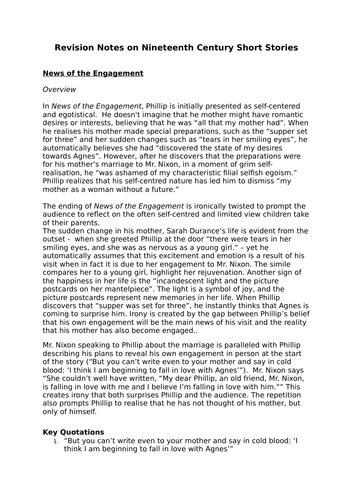

An in-depth, 30-page knowledge organiser for the New Windmill Book of Nineteenth Century Short Stories on the Edexcel IGCSE English Literature Course. For each story, there is:
1. An overview, covering key points on characterisation, plot and themes. Links are made between the stories where relevant.
2. Key quotations
3. A list of key themes.
My GCSE students found this a really useful resource once we had finished first-teaching of the collection, to help them gain a thorough knowledge of the collection as a whole and a more secure understanding of the connections between the stories. I used this for phased revision - students would revise the information for one story, complete an in-class test on it and then move on to the next. Equally, it could be used as a resource to support essay-writing.
Something went wrong, please try again later.
This resource hasn't been reviewed yet
To ensure quality for our reviews, only customers who have purchased this resource can review it
Report this resourceto let us know if it violates our terms and conditions.
Our customer service team will review your report and will be in touch.